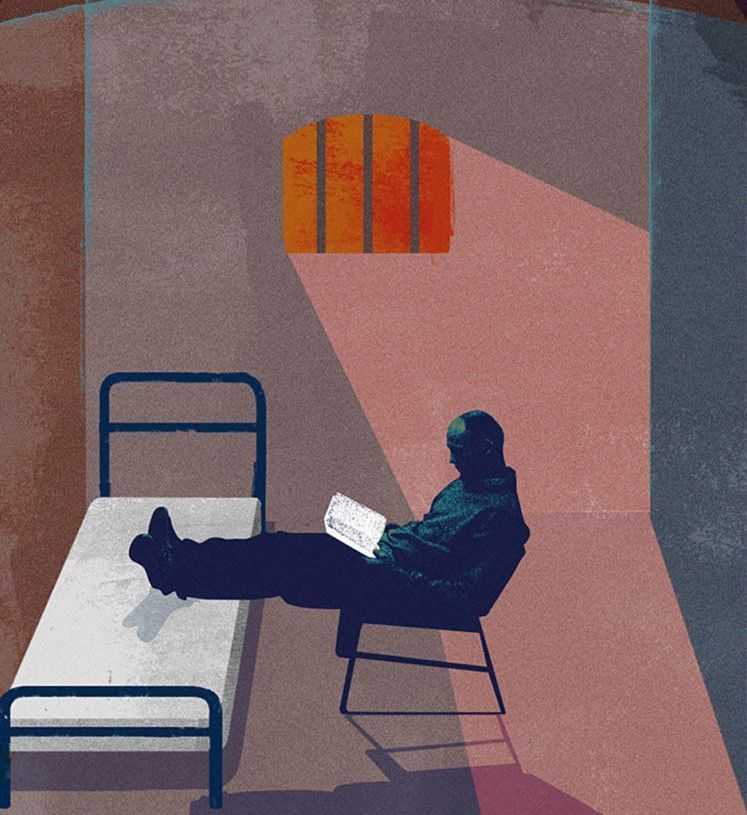US Extreme Book Ban Movement Extends to Prisons
Prison censorship normalizes the idea that reading can be dangerous

In July 2022, Texas prison authorities banned the second edition of Merriam-Webster’s Visual Dictionary because there was an image of a weapon. This banned title was added to the 10,265 others that incarcerated people can’t read in Texas prisons.
Yes, the dictionary.
Unfortunately, dictionaries aren’t the only kind of books banned by Texas corrections officials and their counterparts throughout the United States. As PEN America’s new report Reading Between the Bars shows, books banned in prisons by some states dwarf all other book censorship in school and public libraries. According to PEN America’s report, Florida ranks first in banning books in prisons, with 22,825 books banned (through this year). Kansas has censored 7,669 titles (up to 2021); Virginia 7,204 (up to 2022) and New York 5,356 (up to 2019).
Prison censorship is rising steadily, robbing those behind bars of reading materials on everything from exercise and health to art and even yoga, often for reasons that stretch the boundaries of what's reasonable. One prime example of this is Clifton Collins, Jr. and Gustavo “Goose” Alvarez’s cookbook Prison Ramen, which is the most banned book in America and banned in 19 state prison systems. This cookbook contains stories before each recipe about the way the recipe was developed or a particularly meaningful time it was prepared and eaten. These stories detail what life is like inside and literature that affirms the realities of incarceration are widely censored.
The ban on visual dictionaries is especially cruel and not conducive to the idea of rehabilitation, given they are designed to help people with basic or no literacy. Sixty percent of the U.S. prison population, roughly 720,000 people, are functionally illiterate. Learning to read from the dictionary is a time-honored tradition and dictionaries are the most sought books by incarcerated people. Malcolm X wrote about learning how to read from a dictionary while in prison. “I saw that the best thing I could do was get hold of a dictionary, to study, to learn some words,” he wrote in his autobiography. “I could for the first time pick up a book and read and now begin to understand what the book was saying. Anyone who has read a great deal can imagine the new world that opened.”
Allowing carceral censorship threatens freedom of thought and self-expression. Censorship should not be used to maintain prison security or to promote any other carceral agenda. Martin Lizarragar writes of his experience with censorship while incarcerated in California: “In the end, this oppression, a word I use wholeheartedly here, has caused me significant mental anguish and suffering. It has hurt me, my family, my friends, everyone. It has even, on one occasion, broke me down to tears. This just isn’t right. There is no overview. There is nothing I can do to change this. Books are my escape, and I’m constantly denied even that.
You can read PEN America's report "Reading Between the Bars" at the organization's website. PEN America aims to champion the freedom to write, recognizing the power of the word to transform the world. Our mission is to unite writers and their allies to celebrate creative expression and defend the liberties that make it possible.










